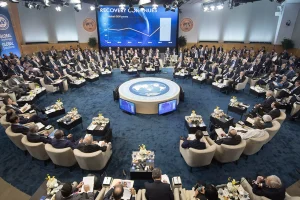
The latest data released by the International Monetary Fund (IMF) during the IMF/World Bank meetings in Morocco on October 10, 2023, paints a more positive picture for Ghana’s economic growth in 2024, despite the challenges it has faced in recent times.
According to the IMF’s projections, Ghana is expected to experience a growth rate of 2.7 percent in 2024, marking a significant improvement from the earlier estimate of just 1.2 percent for 2023. However, it’s important to note that the IMF had initially projected a higher growth rate of 3.1 percent for 2022.
In comparison, Ghana’s neighboring country, Nigeria, an oil-exporting nation, is projected to grow at a rate of 3.2 percent in 2024, while the Ivory Coast boasts an ambitious projection of 6.6 percent growth for the same period.
Ghana, like many other countries in Sub-Saharan Africa, has grappled with a series of economic difficulties, including soaring debt levels, double-digit inflation rates, and currency instability throughout much of the year. These challenges have placed substantial pressure on the nation’s financial and economic landscape.
To address these pressing issues, Ghana has been collaborating closely with the IMF, implementing reforms aimed at stabilizing the economy and reinstating investor confidence. In early October 2023, both the Governor of the Bank of Ghana, Dr. Ernest Addison, and Finance Minister Ken Ofori-Atta expressed optimism about Ghana’s economic recovery. However, these assertions have not been without criticism from various stakeholders in finance, politics, and business.
One contentious point of debate has been the introduction of a domestic debt exchange program earlier this year, which has had repercussions on various investments and savings, causing concerns within the business community and among the general public.
As Ghana navigates these economic challenges and collaborates with international partners such as the IMF, there remains hope that the nation can surmount its current downturn and achieve sustainable growth in the near future. The success of the government’s reform efforts and fiscal policies will play a pivotal role in shaping Ghana’s economic trajectory in the coming years.
 GhArticles.com Every News in Detail
GhArticles.com Every News in Detail



